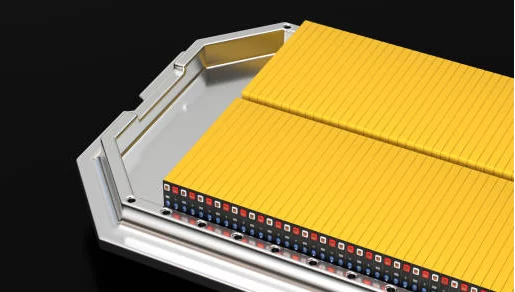Understanding Li Ion Cells: The Future of Energy Storage
In today’s technology-driven world, energy storage plays a crucial role in powering our devices and electric vehicles. Among the various options available, Li-ion cells (lithium-ion cells) have become the standard choice for many applications. In this article, we’ll explore what Li-ion cells are, their advantages, common applications, and why they are likely to dominate the future of energy storage.

What Are Li-Ion Cells?
Li-ion cells are rechargeable batteries that use lithium ions as a key component of their electrochemistry. These cells operate by moving lithium ions from the anode to the cathode during discharge and back again during charging. The lightweight and high energy density of Li-ion cells make them ideal for a variety of applications, from smartphones to electric vehicles.
Advantages of Li-Ion Cells
- High Energy Density
One of the standout features of Li-ion cells is their high energy density. This means they can store a significant amount of energy in a relatively small size. For consumers, this translates to longer-lasting devices and increased convenience. For electric vehicles, higher energy density means longer ranges without needing to recharge.
- Lightweight and Compact
The lightweight nature of Li-ion cells makes them an excellent choice for portable electronics and electric vehicles. Unlike traditional batteries, which can be bulky and heavy, Li-ion cells provide the power needed without adding much weight. This is especially important in applications like drones and electric bicycles, where every ounce counts.
- Low Self-Discharge Rate
Li-ion cells have a low self-discharge rate compared to other battery types. This means they retain their charge for longer periods when not in use. Users can leave their devices idle for extended periods without worrying about draining the battery, making these cells more convenient for consumers.
- Fast Charging Capabilities
Another major advantage of Li ion cellsis their ability to charge quickly. Many modern devices, including smartphones and laptops, can reach a full charge in just a few hours. Fast charging technology has made it possible for consumers to spend less time tethered to a power source and more time on the go.
- Environmentally Friendly
Compared to other battery technologies, Li-ion cells are generally more environmentally friendly. They do not contain toxic heavy metals like lead or cadmium, which can pose environmental hazards. Furthermore, recycling programs for Li-ion batteries are becoming increasingly common, allowing for responsible disposal and material recovery.
Common Applications of Li ion cells
- Consumer Electronics
Li-ion cells are the go-to choice for powering consumer electronics like smartphones, tablets, laptops, and cameras. Their high energy density and lightweight design make them ideal for devices that require portability without sacrificing performance.
- Electric Vehicles (EVs)
The automotive industry has seen a significant shift towards electric vehicles, with Li-ion cells leading the charge. Their ability to store large amounts of energy efficiently makes them perfect for powering electric motors. As the demand for EVs increases, the role of Li ion cells will only grow.
- Renewable Energy Storage
As the world moves towards renewable energy sources like solar and wind, the need for effective energy storage solutions has become paramount. Li-ion cells are increasingly used to store energy generated from these renewable sources, ensuring a consistent power supply even when generation fluctuates.
- Power Tools
Many power tools now utilize Li ion cells due to their lightweight design and high energy density. This allows for longer usage times and less downtime for charging, making them popular among professionals and DIY enthusiasts alike.
- Medical Devices
In the medical field, Li-ion cells power a variety of devices, from portable diagnostic equipment to implantable devices. Their reliability and efficiency are critical in healthcare, where consistent performance is essential.
The Future of Li ion cells
As technology continues to advance, so do the possibilities for Li ion cells. Researchers are exploring new materials and chemistries to enhance performance further, including solid-state batteries, which promise even higher energy densities and safety. Additionally, the development of faster charging technologies will likely make these batteries even more convenient for everyday use.
Conclusion
Li ion cells are revolutionizing the way we think about energy storage. Their combination of high energy density, lightweight design, and fast charging capabilities make them ideal for a wide range of applications, from consumer electronics to electric vehicles. As we continue to innovate and push the boundaries of technology, Li-ion cells will undoubtedly play a pivotal role in our energy landscape.
If you’re considering making the switch to devices powered by Li-ion cells, rest assured that you’re choosing a reliable and efficient energy storage solution. With ongoing advancements and a growing focus on sustainability, the future looks bright for Li-ion technology.
